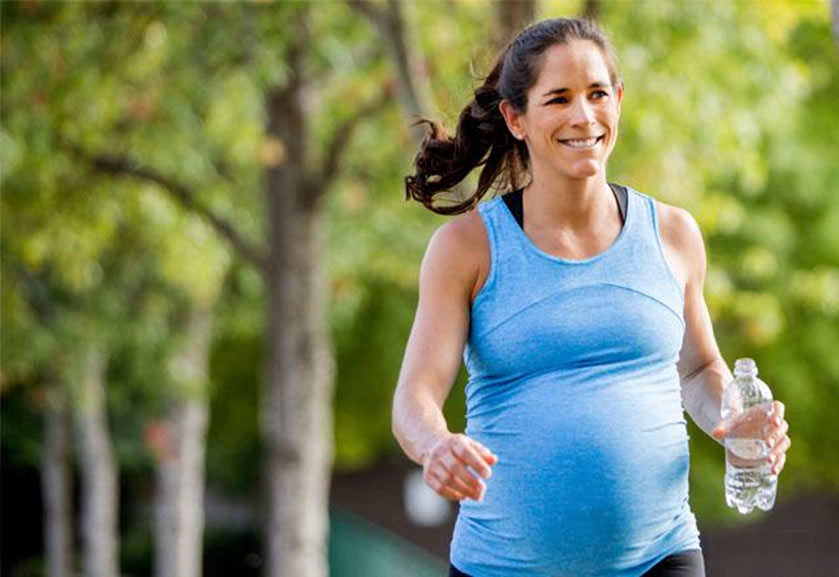There are usually many questions that come to mind when planning how to exercise during pregnancy. In this instance, I am referring to physical exercise that is, the bodily activity that improves or maintains physical fitness and overall health and wellness. This type of exercise during pregnancy is important and can help with some of the common discomforts and even help prepare your body for labor and delivery.
Exercise during pregnancy is considered a basic health routine as health care providers will have you continue with exercise you are involved in or start you on an exercise regimen if you are not active at all. Exercise is usually helpful for both you and your baby.
Is exercise during pregnancy safe?
Before you begin exercising, remember it is important to talk to your healthcare provider, overall and in most cases, exercise is safe during pregnancy. You will usually find it is even recommended. Typically, the first rule of thumb is if you were physically active before you were pregnant, it is likely safe to remain active during pregnancy. More than likely, your healthcare provider will tell you to remain active, as long as it is comfortable and there are no other health conditions suggesting otherwise.
Exercising for 30 minutes on most, or all, days can benefit your health during pregnancy. Exercising for just 20 minutes, 3 or 4 days a week, is still beneficial, as well. The important thing is to be active and get your blood flowing.
If you typically get little or no activity, walking is a great exercise to start with. Walking is usually safe for everyone, it is easy on your body and joints, and it doesn’t require extra equipment. It is also easy to fit into a busy schedule.
Too much exercise can be a problem. Similarly, strenuous exercise can introduce risks. It is always important to put safety and health first. This is true whether you are pregnant or not. However, during pregnancy your exercise has effects on more than just one person, this is why caution should be the watchword.
A note of caution here, this is not the time to exercise for weight loss, however, proper exercise during pregnancy will likely help with weight loss after the delivery of your baby. Exercise does not put you at risk for miscarriage in a normal pregnancy. However, as earlier stated the general rule for a pregnant woman is to consult with her health care provider before starting any new exercise routine.
Here are some of the benefits from exercise during pregnancy you may experience:
- Helps reduce back pain, constipation, bloating, and swelling
- May help prevent or treat gestational diabetes
- Exercise could improve your posture before and after childbirth
- Promotes muscle tone, strength, and endurance
- Helps you sleep better
- Regular activity also helps you keep fit and may improve your ability to cope with labor. This will make it easier for you to get back in shape after your baby is born
If you participated in a regular exercise activity prior to becoming pregnant, it is probably fine to continue to participate during your pregnancy. There are many exercises that are safe to do during your pregnancy, but it is important not to overdo it and to use caution.
You will probably want to avoid these types of exercises during pregnancy:
- Activities where falling is more likely
- Exercise that may cause any abdominal trauma, including activities that with jarring motions, contact sports or rapid changes in direction
- Activities that require extensive jumping, hopping, skipping, or bouncing
- Bouncing while stretching
- Waist twisting movements while standing
- Intense bursts of exercise followed by long periods of no activity
- Exercise in hot, humid weather
- Do not hold your breath for an extended period of time
- Do not exercise to the point of exhaustion
Some basic tips or guidelines on exercise during pregnancy:
- Be sure to wear loose fitting, comfortable clothes, as well as, a good supportive bra.
- Choose well-fitting shoes that are designed for the type of exercise you are doing.
- Exercise on a flat, level surface to prevent injury.
- Eat enough healthy calories to meet the needs of your pregnancy, as well as, your exercise program.
- Finish eating at least one hour before exercising.
- Drink plenty of water before, during and after your workout.
- After doing floor exercises, get up slowly and gradually to prevent dizziness.
Squatting during labor may help open your pelvic outlet to help your baby descend, so practice squatting during pregnancy. To do a squat, stand with feet shoulder-width apart and slowly lower into a squat position. You should keep your back straight, heels on the floor and your knees shouldn’t protrude in front of your feet. Hold the squat for 10 to 30 seconds; you can rest your hands on your knees…
Physical exercise is good, especially during pregnancy. It is always important to put safety and health first. Above all, it is advisable to check with your healthcare provider before, during and possibly after exercise, whether you are pregnant or not.
Compiled using information from;
Guide To A Healthy Pregnancy. New York, NY: HarperCollins Publishers Inc.




